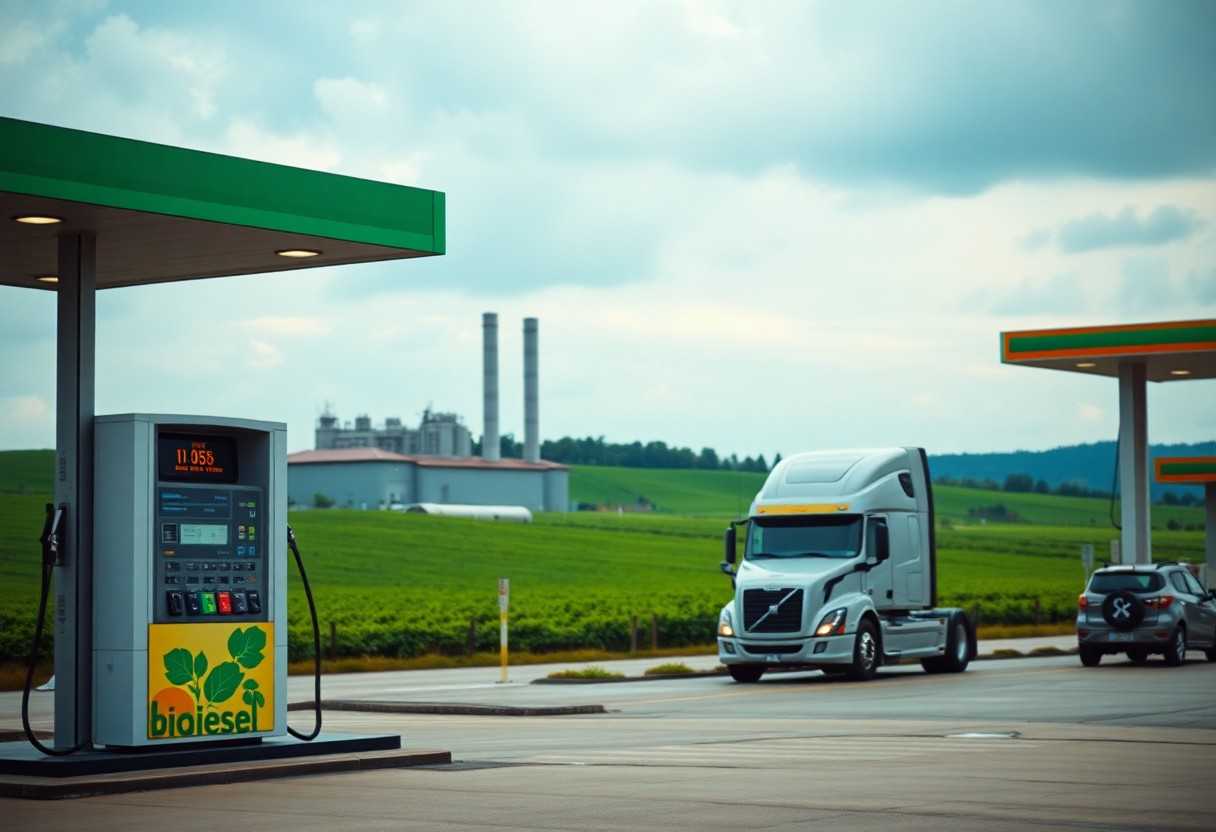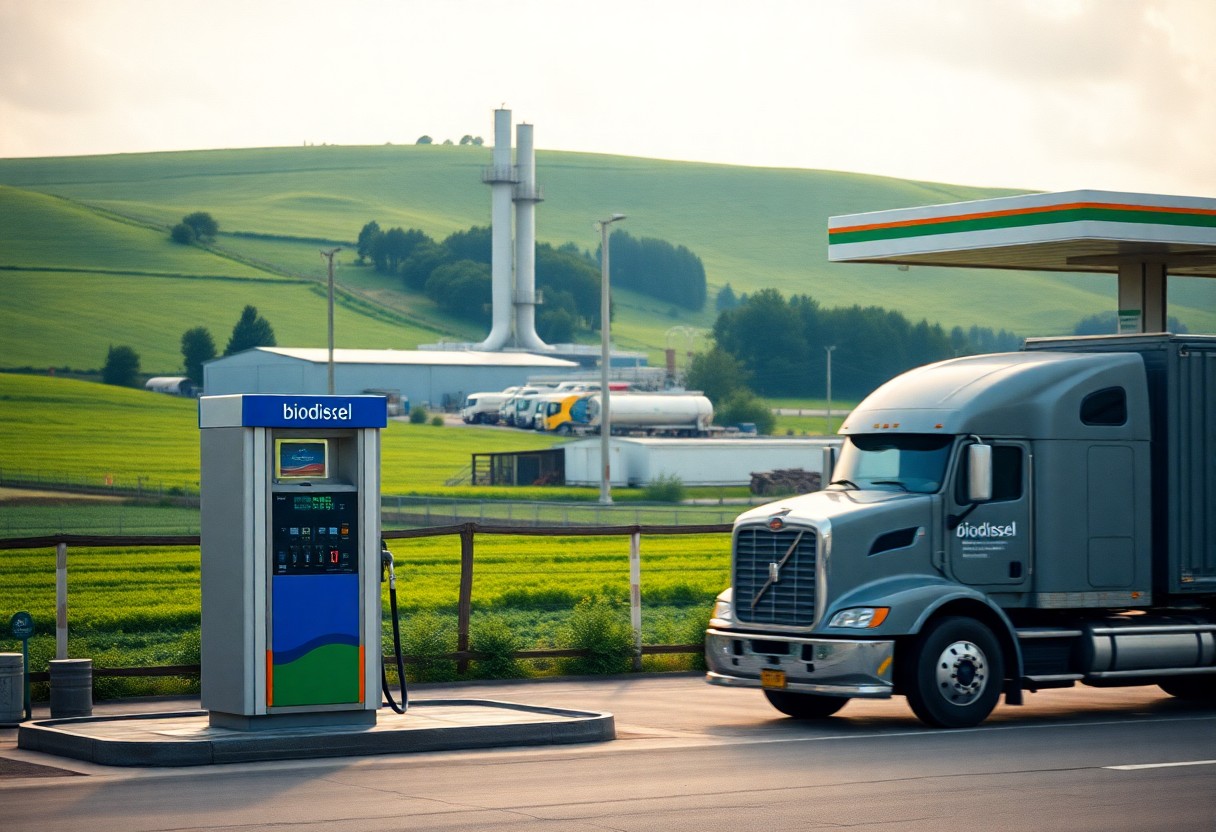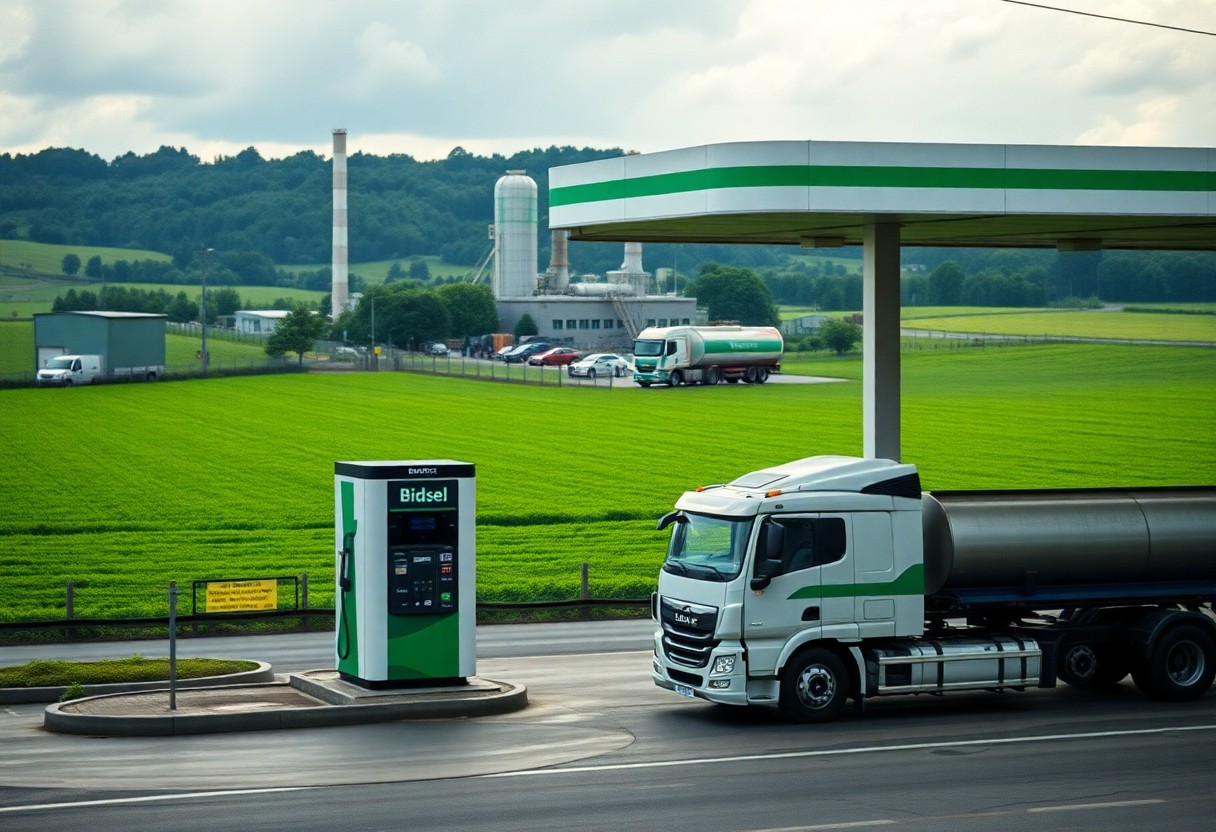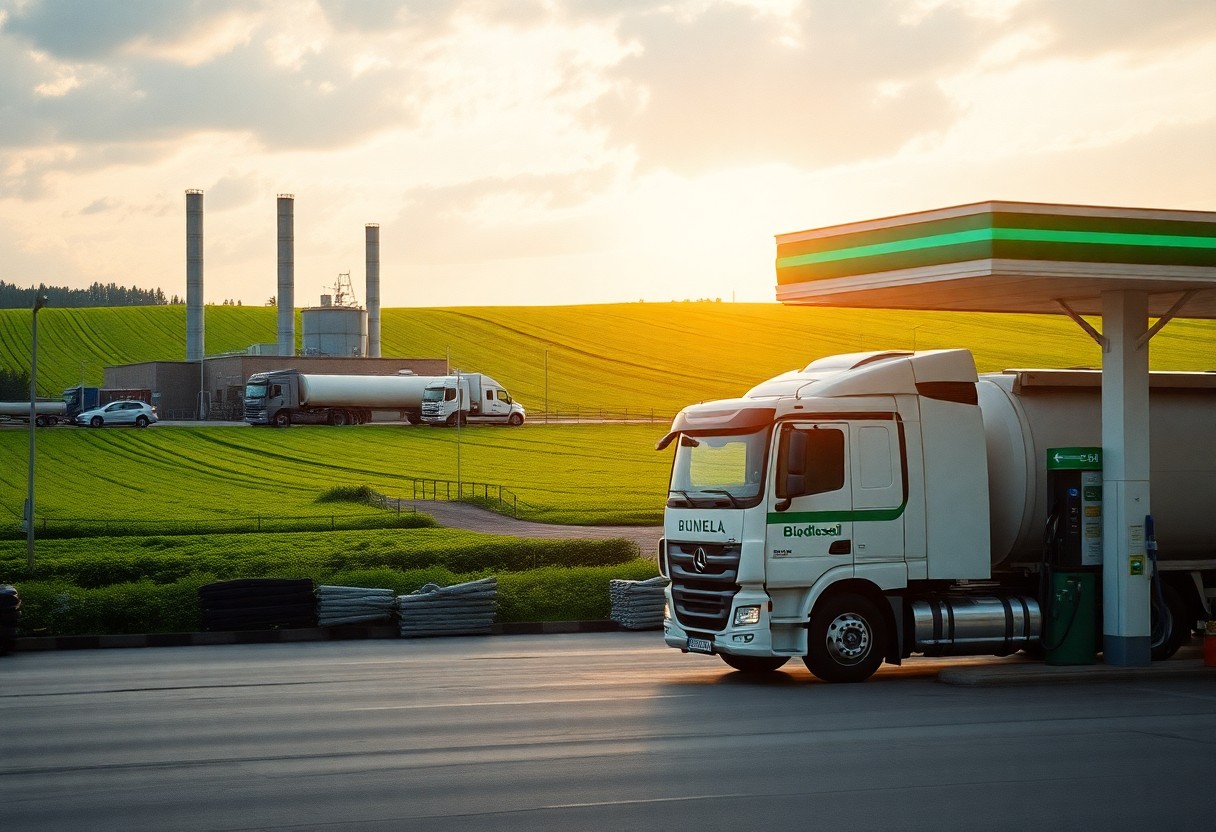As you consider alternative fuel options, you may be wondering about the benefits of biodiesel over traditional diesel fuel. Your decision to switch to biodiesel can have a significant impact on your vehicle’s performance and the environment. You will find that biodiesel offers several advantages, including reduced greenhouse gas emissions and improved engine lubrication, making it a viable option for your transportation needs. By choosing biodiesel, you can contribute to a more sustainable future while also improving your vehicle’s overall efficiency.

Environmental Benefits
A key aspect of biodiesel is its positive impact on the environment, allowing you to reduce your carbon footprint and contribute to a more sustainable future.
Reduction in Greenhouse Gas Emissions
With the use of biodiesel, you can significantly lower your greenhouse gas emissions, helping to mitigate climate change and its devastating effects on your planet.
Decrease in Air Pollution
Generally, greenhouse gases and air pollutants are significantly decreased when you use biodiesel, making the air cleaner and healthier for you to breathe.
To further understand the decrease in air pollution, you should consider the fact that biodiesel produces fewer particulate emissions, which can cause respiratory problems and other health issues, allowing you to create a better environment for yourself and your community.

Economic Advantages
One of the significant benefits of biodiesel is its economic advantages, which can be explored in more detail by visiting the Biodiesel Blends – Alternative Fuels Data Center to learn about the various blends available. As you consider biodiesel, you’ll find that it offers a range of economic benefits.
Job Creation and Local Economy Boost
By supporting local biodiesel production, you can contribute to job creation and a boost in the local economy, as the industry grows and develops, providing new opportunities for employment and investment in your community.
Reduced Dependency on Fossil Fuels
On a larger scale, using biodiesel can help reduce your dependency on fossil fuels, which can lead to significant economic benefits, including reduced fuel costs and a more stable energy market, as you become less reliant on imported fossil fuels.
The reduced dependency on fossil fuels also means that you will be less affected by price fluctuations, which can have a major impact on your budget, allowing you to better plan and manage your energy expenses, and as a result, you can allocate your resources more efficiently, leading to cost savings and increased economic stability.
Performance and Efficiency
Clearly, when comparing biodiesel to traditional diesel fuel, you’ll find that biodiesel offers several advantages. For more information, visit Biodiesel vs. Diesel Fuel: How Biodiesel Compares to learn about the benefits of biodiesel.
Comparable Engine Performance
Among the key benefits of biodiesel is its similar engine performance to traditional diesel. The following table highlights the comparison:
| Characteristics | Biodiesel |
|---|---|
| Engine Power | Similar to Diesel |
| Fuel Efficiency | Comparable to Diesel |
Increased Lubricity and Engine Longevity
The benefits of biodiesel also extend to your engine’s longevity.
Lubricity is a key factor in engine performance, and biodiesel has a higher lubricity than traditional diesel, which means you can enjoy a longer engine life and lower maintenance costs.
Energy Security
Many countries are turning to biodiesel as a way to reduce their reliance on traditional diesel fuel, and for good reason. You can benefit from using biodiesel, as it enhances your energy security by providing a domestic and renewable source of energy.
Diversification of Energy Sources
On the other hand, you will find that biodiesel offers a viable alternative to traditional diesel, allowing you to diversify your energy sources and reduce your dependence on a single fuel type.
Reduced Dependence on Foreign Oil
Foreign oil imports can be costly and unpredictable, but you can mitigate this risk by using biodiesel, which is typically produced domestically, reducing your reliance on foreign oil and enhancing your energy independence.
Energy independence is a significant advantage of biodiesel, as it allows you to reduce your exposure to price volatility and supply chain disruptions associated with foreign oil imports, giving you more control over your energy costs and enabling you to make more informed decisions about your energy use.
Production and Availability
Unlike traditional diesel, biodiesel can be produced from renewable resources, making it a more sustainable option. You can learn more about the production process in An Overview of Biodiesel and Petroleum Diesel Life Cycles, which provides a detailed analysis of the life cycles of both fuels.
Domestic Production and Distribution
Against the backdrop of growing demand, you’ll find that your domestic production and distribution options are expanding, with many countries investing in biodiesel production facilities.
Growing Infrastructure and Accessibility
Production of biodiesel is becoming more widespread, and you’ll notice that your access to biodiesel fueling stations is increasing, making it easier for you to make the switch.
Indeed, as you explore the growing infrastructure and accessibility of biodiesel, you’ll discover that many governments and companies are investing in the development of biodiesel fueling stations and distribution networks, making it more convenient for you to use biodiesel in your daily life.

Challenges and Limitations
All things considered, as you probe into the world of biodiesel, you’ll encounter several drawbacks that might impact your decision to adopt this alternative fuel source.
Higher Upfront Costs and Infrastructure
Challenging as it may seem, you’ll find that the initial investment for biodiesel production and distribution infrastructure can be quite steep, affecting your bottom line.
Limited Compatibility with Older Engines
One of the significant limitations you’ll face is that biodiesel may not be compatible with older engine models, which could lead to performance issues or even damage to your vehicle.
Hence, as you consider switching to biodiesel, you need to assess your engine’s compatibility to avoid any potential risks, and you may need to upgrade your engine or vehicle to reap the benefits of biodiesel, which could be an added expense, but it will ensure you can utilize this eco-friendly fuel source safely and efficiently.
1. Renewable resource reduces dependency on fossil fuels.
2. Lower greenhouse gas emissions compared to traditional diesel.
3. Biodegradable, minimizing environmental impact in spills.
4. Improved engine performance and cleaner combustion.
5. Domestic production supports local economies and jobs.
6. Compatible with existing diesel engines and infrastructure.
Summing up
So, you now know the major biodiesel advantages over traditional diesel fuel. You can reduce your greenhouse gas emissions and dependence on fossil fuels by using biodiesel. Your choice to switch to biodiesel can also improve your engine’s performance and increase your energy security. As you consider your options, you’ll find that biodiesel is a cleaner, more sustainable alternative that benefits your environment and your community.



